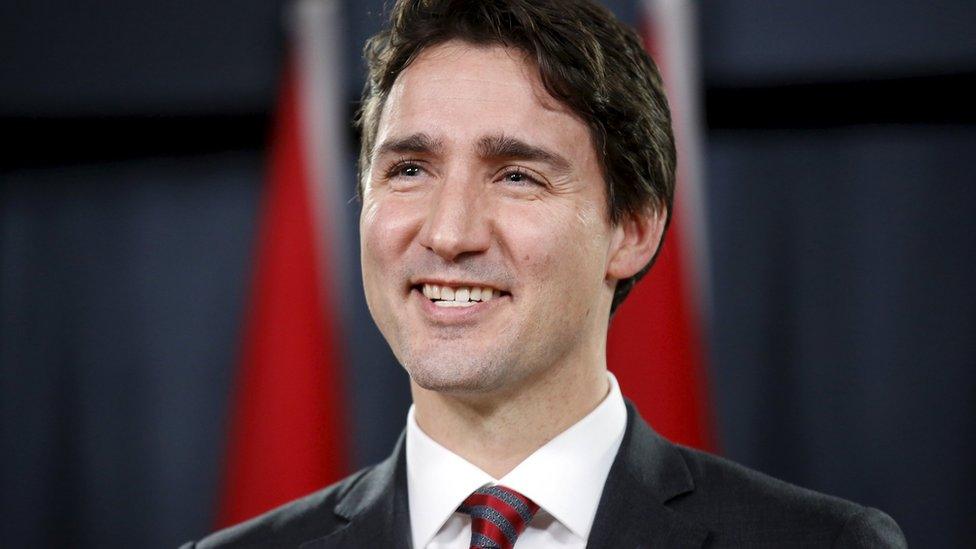Canada’s 'dirty oil' climate change dilemma
- Published
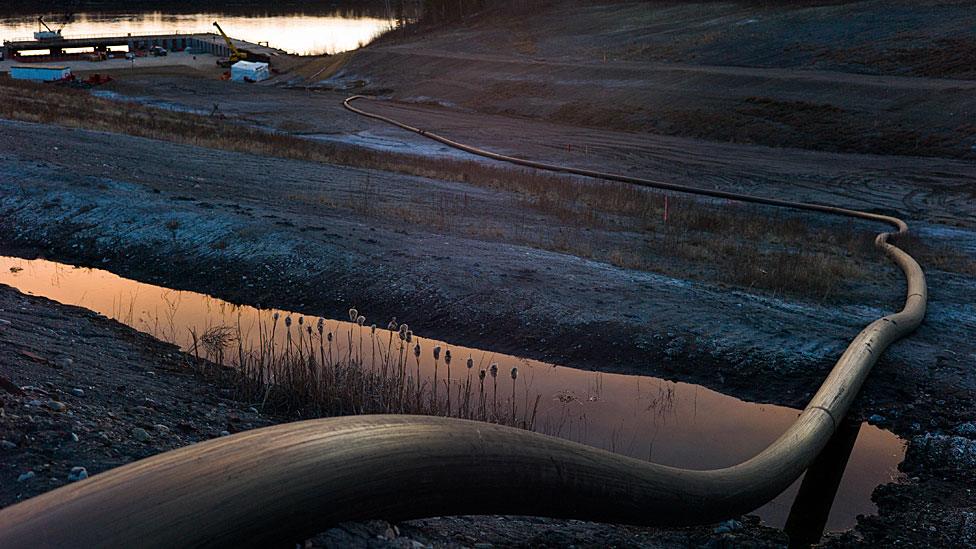
Alberta's oil sands have long been a a target of climate change campaigners
A debate is raging in Alberta over plans to get more "dirty oil" out of the ground, which some say is in conflict with Canada's environmental commitments. BBC HARDtalk went to investigate.
When Hanna Fridhed welcomed us into her home in Fort McMurray last month, there was no door to walk through and no windows to look out of, just the charred remains of a house obliterated by fire.
The culprit? The Beast - the name given to the massive wildfire that swept through northern Alberta in Canada in May, destroying parts of Fort McMurray and forcing the evacuation of its roughly 90,000 residents.
For many environmentalists, the wildfire was not simply a natural disaster but partly the result of man-made climate change, a point brought uncomfortably close to home by Fort McMurray's proximity to Alberta's vast oil sands deposits.
The oil sands, sometimes referred to as "dirty oil", have long been a target of climate change campaigners who insist that the energy-intensive extraction of oil sands and the greenhouse gas emissions it generates, mean most of the remaining deposits must stay in the ground.
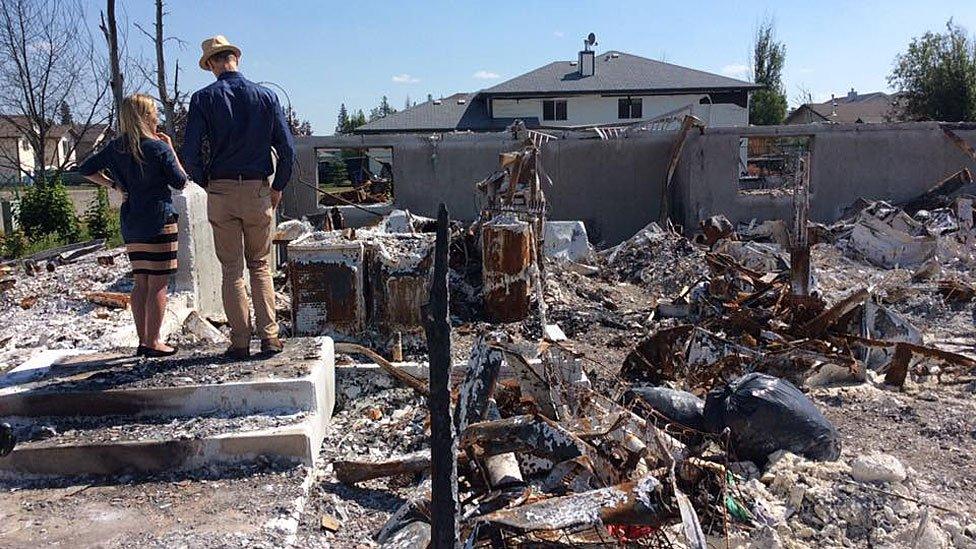
Hanna Fridhed shows HARDtalk's presenter Stephen Sackur all that is left of her home
But that is highly unlikely especially with an estimated 160 billion barrels lying beneath Alberta's soil.
Instead, Alberta's provincial government is introducing an economy-wide carbon tax from next year and a cap on greenhouse gas emissions.
That, along with Prime Minister Justin Trudeau's signing of the Paris Climate Agreement in April, is seen as real progress by some Canadians.
Or is it? At the moment, oil sands operations emit roughly 70 megatonnes of greenhouse gas emissions each year but the cap will be set at 100 megatonnes.
Alberta's Minister of Environment Shannon Phillips defended the higher cap: "The CO2 is what matters here and Alberta is the first and only energy-producing jurisdiction to say, 'Look yes you may develop, but you must do so responsibly under an emissions cap this far and no further'.
Alberta's Environment Minister Shannon Phillips defends a higher emissions cap
"The fact of the matter is that in the short to medium term, 20% of Canadian GDP relies on Alberta's oil and gas industry. That's not small.
"With all due respect to environmental groups outside of this province, our prime responsibility is to the people of Alberta and we've just gone through a massive drop in oil prices, tens of thousands of people out of work."
So do environmental groups such as Greenpeace need to get real? Is it economically viable, let alone plausible, for Canada to turn its back on such a lucrative resource?
Greenpeace activist Mike Hudema said Alberta's initiatives were "good initial steps", but added: "When you look at tar sands or oil sands development, there's no way you can continue to expand, to add 30 megatonnes of greenhouse gas emissions to the atmosphere and still meet what we said we were going to meet in Paris."
Most of the oil sands are found under forests populated by bears, moose and other native wildlife. And within a stone's throw from this natural splendour is the Christina Lake oil sands operation, south of Fort McMurray.
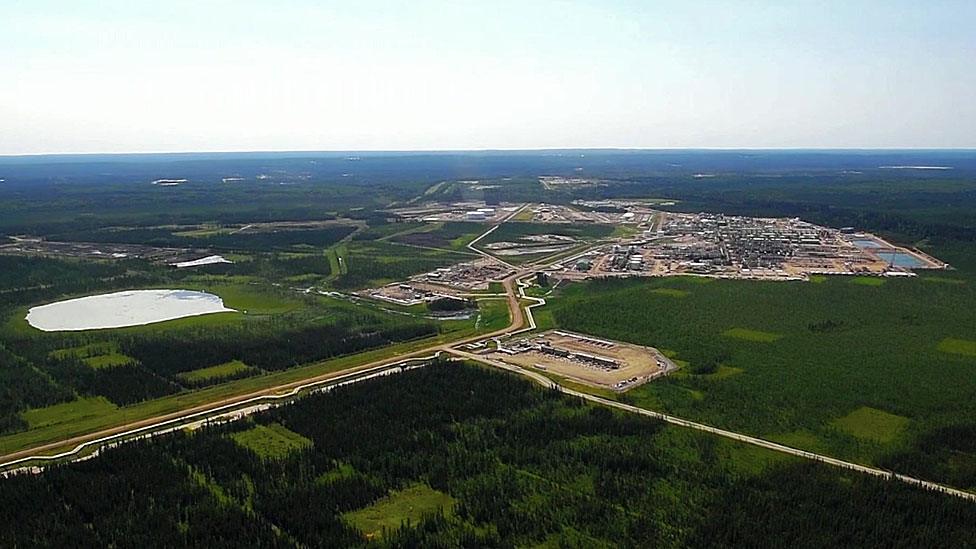
Christina Lake produces about 160,000 barrels of oil a day
It is run by Cenovus Energy, whose executive vice-president of oil sands manufacturing, Drew Zieglgansberger, guided us on a full day's tour, a sort of smorgasbord of the various processes used to bring the oil to the surface.
Drills burrow down to the oil sands, which can be 500m below the surface, then steam is pumped in to liquefy the oil before it is pumped to the surface. No open pit mining, no huge scars on the landscape and no lakes of toxic waste. But the process is very energy intensive.
"I think the challenge is really not oil production it's the carbon emissions associated with oil," Mr Zieglgansberger told us.
"One of the big things we've been able to unlock here using technology is actually enabling this resource to be part of the energy mix. In the last 10 years alone we've dropped the emissions intensity of these barrels by over 33%."
Christina Lake produces about 160,000 barrels of oil a day and Cenovus has plans for further expansion.
Mr Zieglgansberger acknowledged climate change is "one of the most important challenges of our time," but insists the oil is necessary.
"lt is going to be needed in any energy mix in any consensus, any report that's been published. If we look out [across] the next decades, oil is still going to be needed."
HARDtalk on the Road in Canada is presented by Stephen Sackur and produced by Tama Muru. You can see the programme on Monday 22 August on BBC World News and the BBC News Channel and after on BBCiPlayer (UK only).
- Published17 May 2016
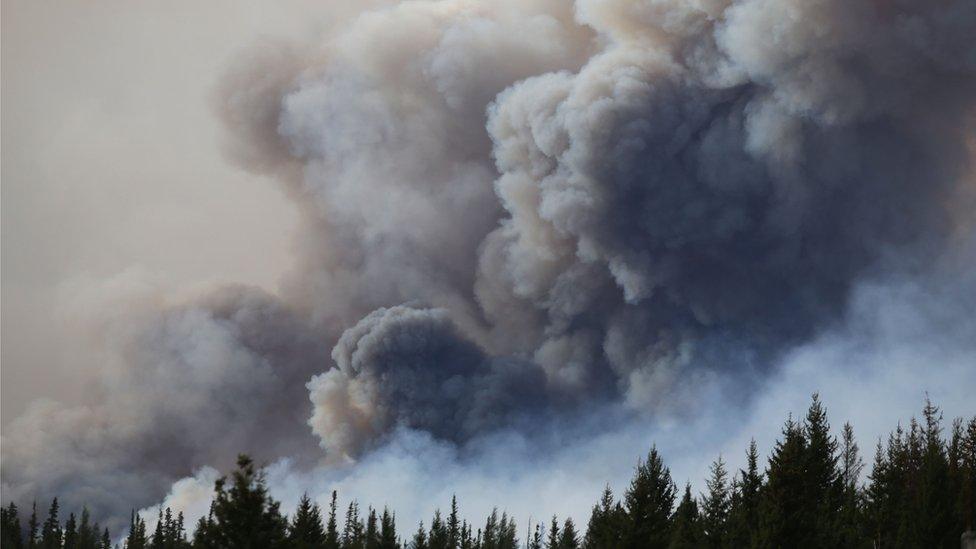
- Published11 May 2016
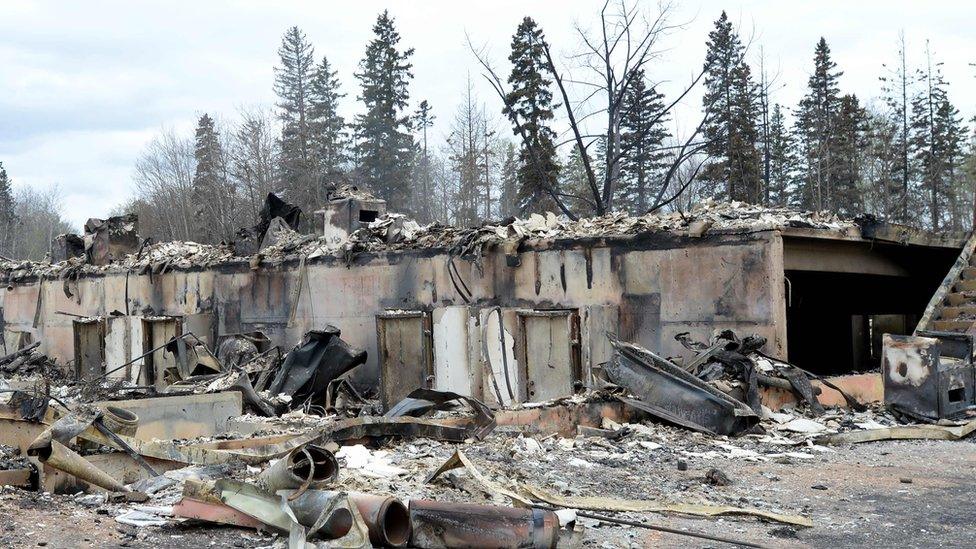
- Published8 May 2016
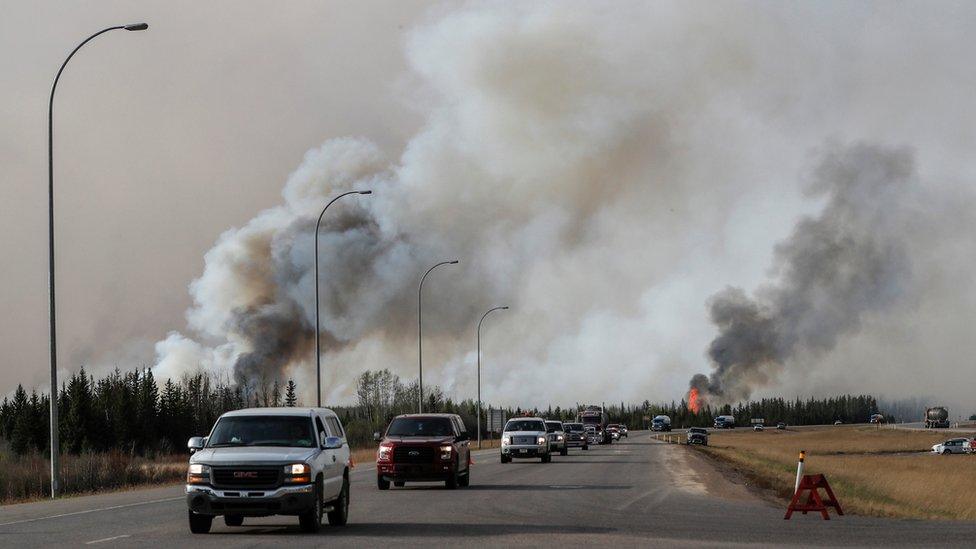
- Published4 May 2016
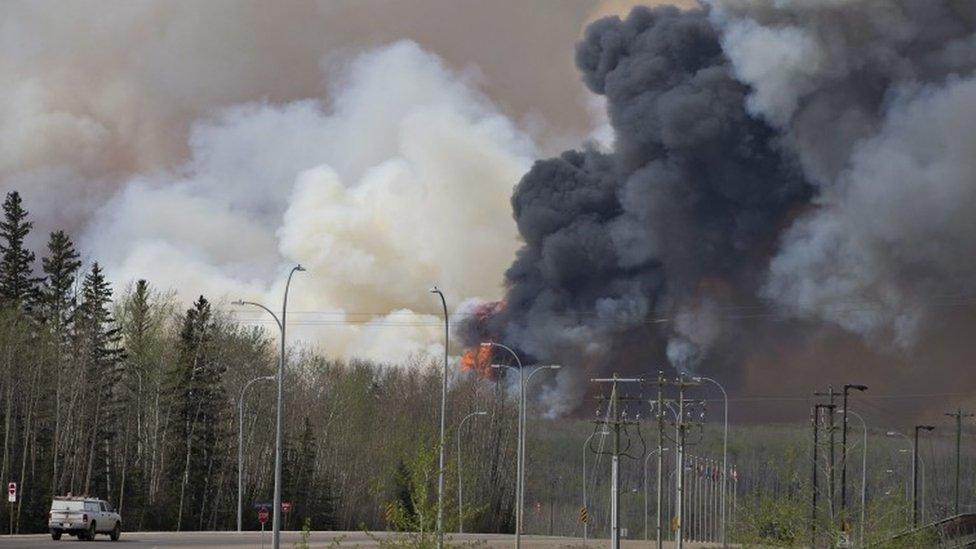
- Published7 January 2016
